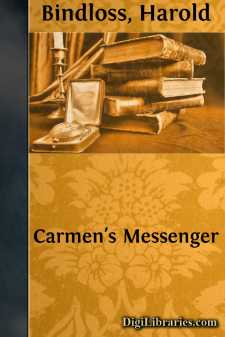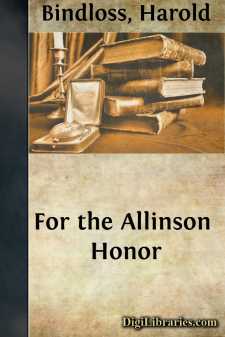Categories
- Antiques & Collectibles 13
- Architecture 36
- Art 48
- Bibles 22
- Biography & Autobiography 816
- Body, Mind & Spirit 145
- Business & Economics 28
- Children's Books 17
- Children's Fiction 14
- Computers 4
- Cooking 94
- Crafts & Hobbies 4
- Drama 346
- Education 58
- Family & Relationships 59
- Fiction 11834
- Foreign Language Study 3
- Games 19
- Gardening 17
- Health & Fitness 34
- History 1378
- House & Home 1
- Humor 147
- Juvenile Fiction 1873
- Juvenile Nonfiction 202
- Language Arts & Disciplines 89
- Law 16
- Literary Collections 686
- Literary Criticism 179
- Mathematics 13
- Medical 41
- Music 40
- Nature 179
- Non-Classifiable 1768
- Performing Arts 7
- Periodicals 1453
- Philosophy 66
- Photography 2
- Poetry 897
- Political Science 203
- Psychology 45
- Reference 154
- Religion 516
- Science 126
- Self-Help 85
- Social Science 82
- Sports & Recreation 34
- Study Aids 3
- Technology & Engineering 59
- Transportation 23
- Travel 463
- True Crime 29
Our website is made possible by displaying online advertisements to our visitors.
Please consider supporting us by disabling your ad blocker.
Johnstone of the Border
by: Harold Bindloss
Description:
Excerpt
CHAPTER I
THE SUMMONS
Sable Lake shone like a mirror among the ragged pines, as it ran back between the rocks, smooth as oil except where a puff of wind streaked its flashing surface with faint blue wrinkles. Behind it the lonely woods rolled on, south to Lake Superior and north to Hudson Bay. At one place a new transcontinental railroad cut its way through the forest; hammers rang and noisy gravel plows emptied the ballast cars along the half-graded track; but these sounds of human activity were quickly lost and in a mile or two only the splash of water and the elfin sighing in the pine-tops broke the deep silence of the woods. This belt of tangled forest, where the trees are stunted and the soil is sterile, offers no attraction to homesteader or lumberman. In consequence, it has lain desolate since the half-breed voyageurs, who crossed it with canoe and dog-team, abandoned the northwest trail when the Canadian Pacific locomotives began to pant through the rock-cuts by Lake Superior.
The solitude itself had drawn Andrew Johnstone into the quiet bush. The lone trail had a charm for him. He knew the empty spaces of Canada; for his inaptitude for an idle life had led him on adventurous journeys through many leagues of its trackless forest. He was of the type that preferred some degree of hardship to conventional comfort. His one ambition had been to be a soldier; it was the career which from early boyhood he had chosen. He had entered Woolwich as a prize cadet, and had left it with honors; but a few weeks later he had met with an accident on a mountain crag, and his military career was suddenly closed. The surgeons did what they could; but it soon was obvious that Andrew never again would be able to take his place in the British Army. He was not crippled; he could still walk well; but he limped slightly and his injured knee gave him trouble sometimes.
He sat alone now, on a rock that jutted out into the lake. The thick branches of a spruce sagged above him and furnished a welcome shadow, for it was a close, hot day. A few feet behind him a gray trout lay in the frying-pan beside a log hearth; and beyond that stood a small weather-beaten tent, with flecks of bright sunlight filtering through the trees and spreading over it in fantastic shapes.
Andrew lighted his pipe and looked about him in languid content. The pines that came down to the lake's edge were small and ragged; some had been blackened by fire and some leaned drunkenly, but their resinous sweetness hung about the camp. In the shadow, the reflection of worn rock and rigid branch floated on the crystal water; but the reflections quivered, and there was a soft splash upon the pebbles near Andrew's feet. He heard it with reminiscent satisfaction and a touch of longing. It reminded him of the swirl of the salt tide along the Solway shore; and his thoughts went back to the Old Country he had left two years before.
He wondered what Elsie and Dick were doing at home at the old house in Annandale. He called Appleyard home because he loved it, better perhaps than Dick did, although the place did not belong to him. When he was left an orphan, Dick's father had brought him up with stern kindness, and he had afterward spent a month or two at Appleyard whenever it was possible. Indeed, in the old man's last illness he had promised that, so far as things permitted, he would look after his somewhat flighty cousin. Andrew remembered with a twinge that he had not done much to keep his promise; but, after all, there seemed no reason to believe that Dick needed him.
Then he thought of little Elsie, as he had called her, though she must be grown up now. He was much the elder, but they had always been good friends. No doubt they would try to marry her to Dick. Andrew was fond of Dick, but he did not think him good enough for Elsie.
For nearly an hour he sat on the rock, lounging back against an outcropping boulder, thinking of Appleyard and little Elsie. Then his thoughts were interrupted by a sound near the tentâsome animal scampering pastâand he stood up and looked out across the lake....












